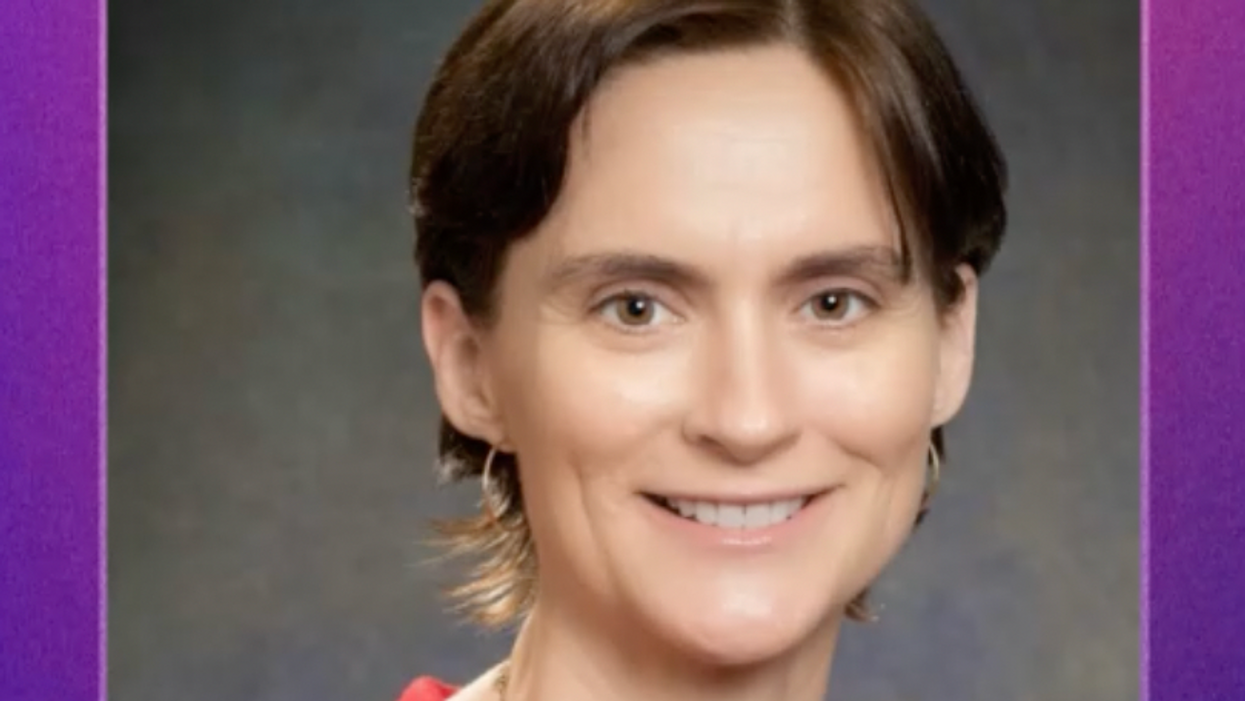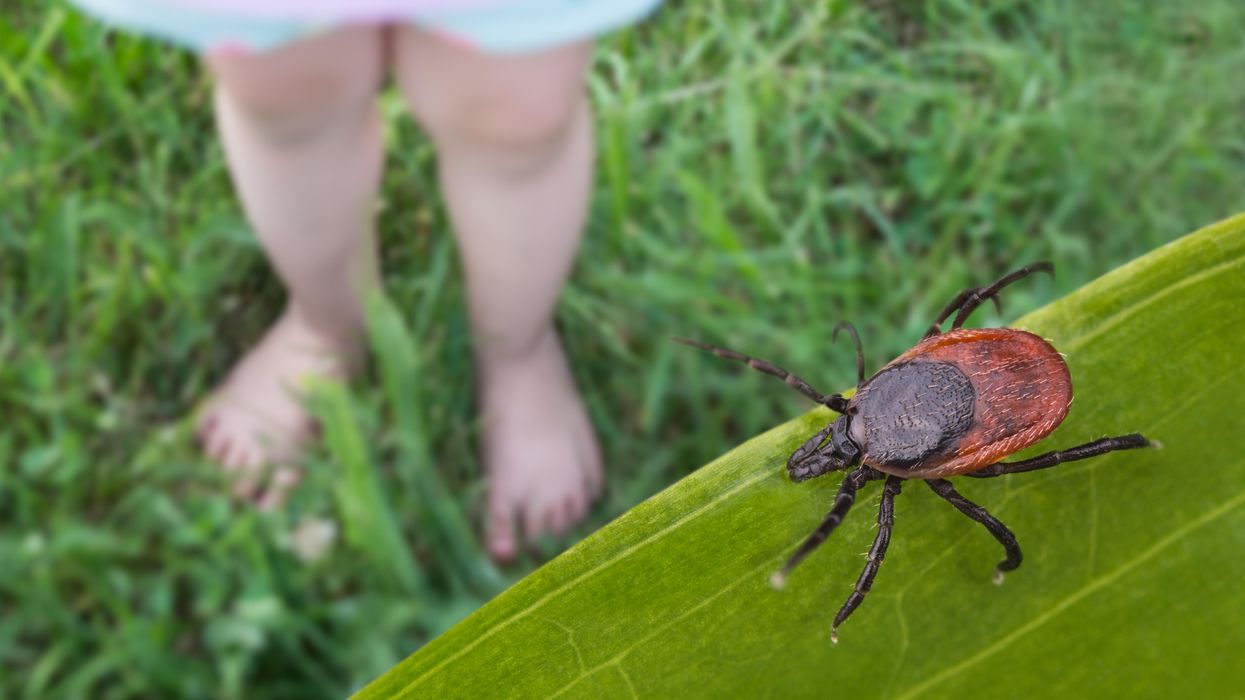Podcast: Pfizer's Head of Medicine Design Discusses the Newly Authorized Anti-Covid Pill
Kira Peikoff was the editor-in-chief of Leaps.org from 2017 to 2021. As a journalist, her work has appeared in The New York Times, Newsweek, Nautilus, Popular Mechanics, The New York Academy of Sciences, and other outlets. She is also the author of four suspense novels that explore controversial issues arising from scientific innovation: Living Proof, No Time to Die, Die Again Tomorrow, and Mother Knows Best. Peikoff holds a B.A. in Journalism from New York University and an M.S. in Bioethics from Columbia University. She lives in New Jersey with her husband and two young sons. Follow her on Twitter @KiraPeikoff.

Charlotte Allerton, a chemist who is Pfizer's Head of Medicine Design, shares why Paxlovid is a significant breakthrough for the treatment of new COVID infections.
The "Making Sense of Science" podcast features interviews with leading medical and scientific experts about the latest developments and the big ethical and societal questions they raise. This monthly podcast is hosted by journalist Kira Peikoff, founding editor of the award-winning science outlet Leaps.org.
This month, Pfizer's Head of Medicine Design shares timely insights on this important breakthrough, including how the pill works, the impressive results of the recent studies, its encouraging profile against Omicron, its expected ability to be effective for both vaccinated and unvaccinated individuals, and why it could alter the trajectory of the pandemic in 2022.
Watch the 60-second trailer
LISTEN TO THE WHOLE EPISODE:
Kira Peikoff was the editor-in-chief of Leaps.org from 2017 to 2021. As a journalist, her work has appeared in The New York Times, Newsweek, Nautilus, Popular Mechanics, The New York Academy of Sciences, and other outlets. She is also the author of four suspense novels that explore controversial issues arising from scientific innovation: Living Proof, No Time to Die, Die Again Tomorrow, and Mother Knows Best. Peikoff holds a B.A. in Journalism from New York University and an M.S. in Bioethics from Columbia University. She lives in New Jersey with her husband and two young sons. Follow her on Twitter @KiraPeikoff.
Podcast: The Science of Recharging Your Energy with Sara Mednick
For today's podcast episode, Leaps.org talks with Sara Mednick, author of The Power of the Downstate, a book about the science of relaxation - why it's so important, the best ways to get more of it, and the time of day when our bodies are biologically suited to enjoy it the most.
If you’re like me, you may have a case of email apnea, where you stop taking restful breaths when you open a work email. Or maybe you’re in the habit of shining blue light into your eyes long after sunset through your phone. Many of us are doing all kinds of things throughout the day that put us in a constant state of fight or flight arousal, with long-term impacts on health, productivity and happiness.
My guest for today’s episode is Sara Mednick, author of The Power of the Downstate, a book about the science of relaxation – why it’s so important, the best ways to go about getting more of it, and the time of day when our bodies are biologically suited to enjoy it the most. As a cognitive neuroscientist at the University of California, Irvine, Mednick has a great scientific background on this topic. After getting her PhD at Harvard, she filled her sleep lab with 7 bedrooms, and this is where she is federally funded to study people sleeping around the clock, with her research published in top journals such as Nature Neuroscience. She received the Office Naval Research Young Investigator Award in 2015, and her previous book, Take a Nap! Change Your Life was based on her groundbreaking research on the benefits of napping.
In our conversation, we talk about how work and society make it tough to get stimulation like food and exercise in ways that support our circadian rhythms, and there just as many obstacles to getting sleep and restoration like our ancestors enjoyed for 99 percent of human history. Sara shares some fascinating ways to get around these challenges, as well as her insights about the importance of exposure to daylight and nature vs nurture when it comes to whether you’re a night owl or an early bird. And we talk about how things could change with work and lifestyles to make it easier to live in accordance with our biological rhythms.
Show notes
3:10 – The definition of “upstates” and “downstates”
5:50 – The power of 6 slow, deep breaths per minute to balance the nervous system
9:05 – Watching out for mouth breathing and email apnea
13:30 – Different ways of breathing for different goals
16:35 – Body rhythms – what is heart rate variability and why is it so important?
21:05 – Are you naturally a morning or night person? Nature vs nurture
27:10 – The perfect storm that gets in the way of following our circadian rhythms
29:15 – The evolution of our pre-bedtime downstates – why it's important to check in with your cave mates
30:10 – The culture shift needed for more people to follow their circadian rhythms and improve their health
35:10 – Employers and communities can build downstates into daily work and life
38:15 – Choosing how we react to the world
41:00 – Being smarter about peak performance
45:09 – The science of pacing yourself for long-term productivity
49:42 – The science of light exposure for circadian rhythms
52:20 – Where to learn more about Sara Mednick’s research and writing
Links:
Sara Mednick’s website https://www.saramednick.com/ and her Twitter
Mednick’s recent book - The Power of the Downstate
Mednick’s book on the benefits of napping - Take a Nap! Change Your Life
The blue light blocking glasses recommended in Mednick’s book https://www.amazon.com/dp/B019C3O2UE?psc=1&ref=ppx_yo2ov_dt_b_product_details
An app for measuring heart rate variability - Elite HRV app https://elitehrv.com/
Thorne take-home Melatonin test
Podcast: The Friday Five weekly roundup in health research
Researchers are making progress on a vaccine for Lyme disease, sex differences in cancer, new research on reducing your risk of dementia with leisure activities, and more in this week's Friday Five
The Friday Five covers five stories in health research that you may have missed this week. There are plenty of controversies and troubling ethical issues in science – and we get into many of them in our online magazine – but this news roundup focuses on scientific creativity and progress to give you a therapeutic dose of inspiration headed into the weekend.
Covered in this week's Friday Five:
- Sex differences in cancer
- Promising research on a vaccine for Lyme disease
- Using a super material for brain-like devices
- Measuring your immunity to Covid
- Reducing dementia risk with leisure activities


